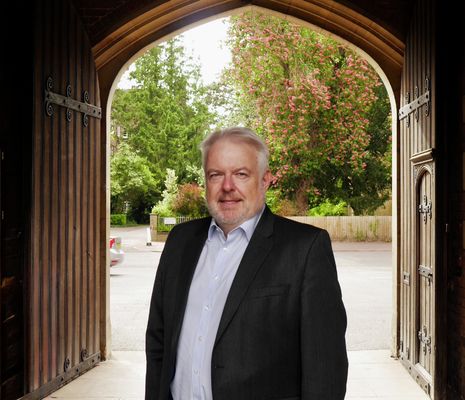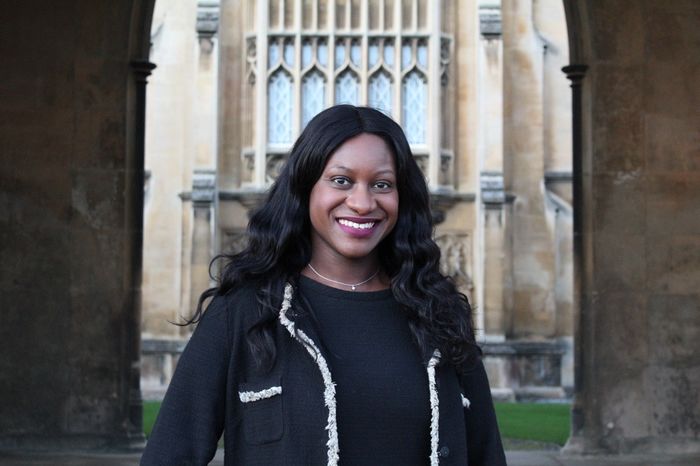In conversation with Carwyn Jones, former First Minister of Wales
Vienna Kwan and Duncan Paterson speak to Carwyn Jones about Westminster, Welsh Labour, and Obama

We weren’t quite sure what to expect when Baron Carwyn Jones of Penybont, former First Minister of Wales and Leader of Welsh Labour, stepped out of the taxi at Selwyn’s Porters’ Lodge, but it certainly wasn’t a jovial man with a big grin and a very strong handshake. As we headed toward Selwyn’s Old Library to conduct the interview, Jones revealed that it was his third time ever in Cambridge. This time, it was for an event with the Selwyn Politics Society.
Growing up in Wales, Jones’ school teachers only thought there were “five degrees in the world worth doing”, one of which was law. Jones is a lawyer-turned-politician, but the original plan was to study economics. In the end, he qualified with a law degree at the University of Aberystwyth and was called to the Bar at Gray’s Inn in 1989. It is with a mixed fondness that he recounts his dinners at Gray’s Inn, where “long dining halls with trestle tables and gowns” were the norm. This Harry Potter-esque experience in London was culturally shocking for Jones, because “I came from a university in Wales where almost everyone there is from a comprehensive school”.
“His message to Westminster is clear: don’t forget about Wales”
When asked about differences between the start of his political career and the present day, he lands on what he believes is the crux of the issue: “the majority of people going into politics are graduates, usually with a politics degree, which is not of itself a bad thing, but it is a bad thing if somebody does nothing else”. For Jones, you cannot “learn people skills from a book”. A politician needs to “solve people’s problems,” and that is what being a criminal lawyer gave him the foundation to do.
An event that couldn’t have been prepared for by the books was the NATO summit held at Newport, Wales during Jones’ tenure as First Minister. Jones and his team meticulously planned the arrival of each delegation, but by the end of it, he had no idea who was who. An individual who “couldn’t be mistaken” though, was President Obama. Obama had “20 cars,” “a full medical ambulance,” and “secret service” surrounding him. Unfortunately, upon going to shake hands with Obama, Jones appeared in a photo to completely ignore David Cameron, who was introducing the two. Jones’ excuse was that “if you’ve got an American president in front of you, you would even ignore the Grim Reaper”. In a way, it is quite reassuring to think that the most powerful people in the world commit the sort of social blunders which would keep us awake at night.
“A politician needs to ‘solve people’s problems,’ and that is what being a criminal lawyer gave him the foundation to do”
Inevitably, we broached the issue that young people often have with political discourse: the image of the stereotypical evasive politician, which Jones, to his credit, did his best to disprove. “I’m a great believer in speaking as plainly as possible […] I always say that if you are going on TV, or you’ve got an interview, if you are going to answer a question yes or no, just say it”.
He then went on to explain that “when politicians are unsure about something on live TV, they’ll preface it with ‘as per my understanding’,” an admission which drew quite a laugh considering our previous conversation about plain speech. With his down-to-earth personality, we almost forget we are speaking to the former First Minister of Wales as he answers a call from his daughter about a problem she had with her car.
Jones is glad his children are grown-up now because, at the moment, he is at the House of Lords “four days a week”. He admits, with a tangible tone of relief, that he would never choose to be an MP as he would have missed “my kids growing up”. Even during his time as First Minister, he was “able to get home almost every night”. There were a number of elephants in the room to tackle when discussing Welsh politics with a Welsh politician, and we had arrived at the largest one of them all – Westminster’s political bubble and its effect on Wales.
Jones highlights the alienation Wales felt within the United Kingdom, particularly in relation to England. He asserts that “the UK does need a good shake up in terms of its structure [and] to be less financially centralised”. These are certainly not new suggestions, but ones that are becoming more pressing with the rise of Plaid Cymru and his party, Welsh Labour, “ranking third in the polls” – something which has “never happened”. He hopes to use his role in the Lords to push for “greater devolution”. However, he does call for the Lords to be replaced by an elected chamber “that is more regionally based” to give “greater balance to the UK”.
Jones revealed that when he was asked to join the Lords, they said to him “we need young people like yourself”. At 58, Jones is one of the youngest in the Lords, although he jokes about recent tube ride where a young person offered him their seat and he, reluctantly, accepted.
Jones is right: you can’t learn people skills from a book. He presents himself as a seasoned politician with a depth of experience gained by wading through the murky swamps of UK and international politics. Despite no longer being First Minister, Jones fondly recalls the position as the best job he will ever have. He remains a stalwart of Welsh Labour, but now holds a life peerage in the House of Lords, yet another institutional battleground. His message to Westminster is clear: don’t forget about Wales.
 News / Colleges charge different rents for the same Castle Street accommodation2 March 2026
News / Colleges charge different rents for the same Castle Street accommodation2 March 2026 News / News in Brief: waterworks, wine woes, and workplace wins 1 March 2026
News / News in Brief: waterworks, wine woes, and workplace wins 1 March 2026 News / Climate activists protest for ‘ethical careers policy’1 March 2026
News / Climate activists protest for ‘ethical careers policy’1 March 2026 News / Angela Merkel among Cambridge honorary degree nominees27 February 2026
News / Angela Merkel among Cambridge honorary degree nominees27 February 2026 News / Private school teacher who lied about Cambridge degree barred from teaching27 February 2026
News / Private school teacher who lied about Cambridge degree barred from teaching27 February 2026









